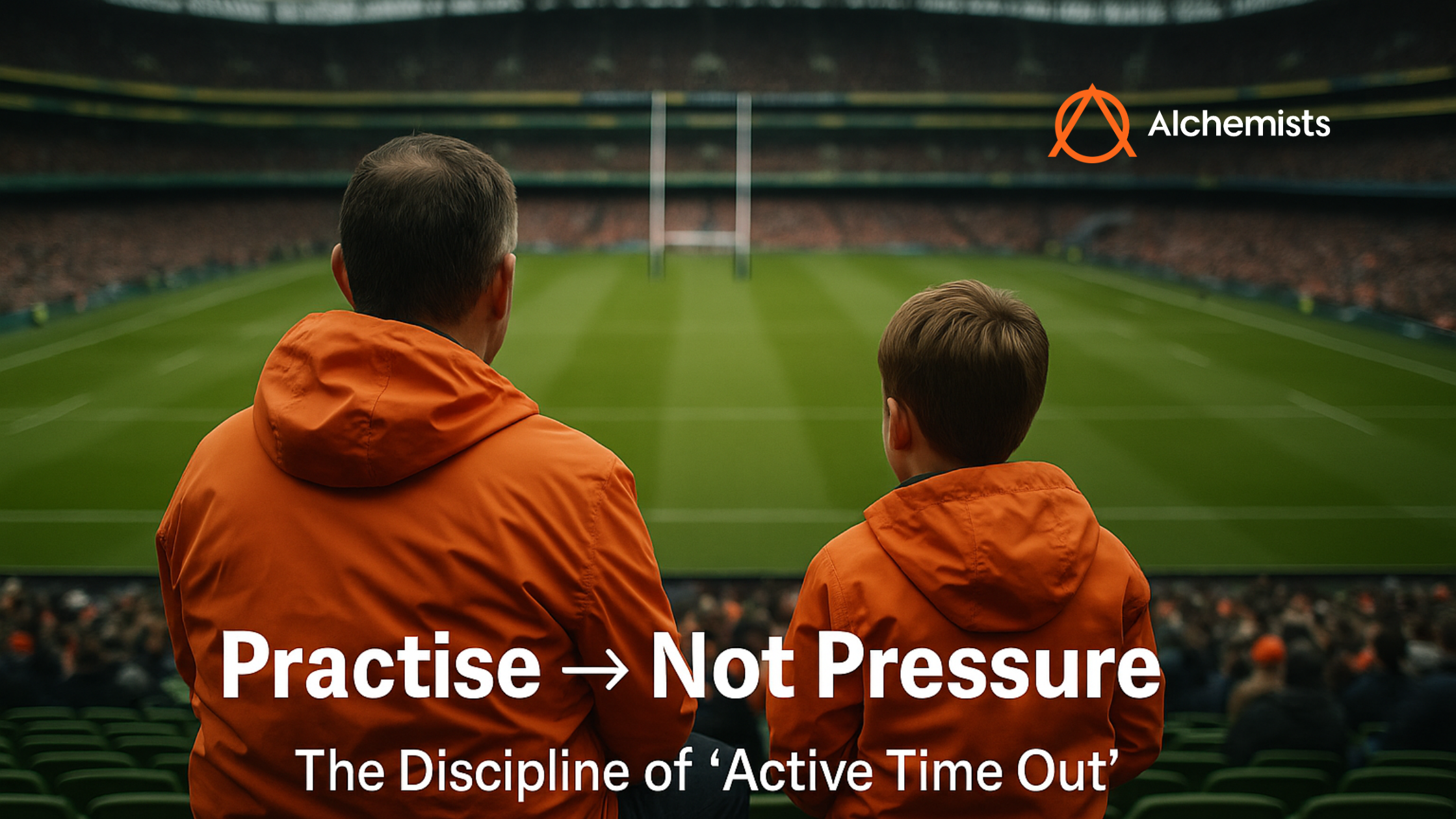The Boy on the Touchline
How a word became a way of life
It started long before I knew what coaching was. Before I’d ever heard of performance psychology, or neuroscience, or flow.
It began on the touchline, cold mornings, muddy boots, and that unmistakable mix of rain, grass, and liniment. I was a boy then, standing beside my dad. He didn’t say much, but I learned everything from him, not through words, but through the quiet way he noticed things. He saw the game differently. He didn’t shout instructions; he studied movement, rhythm, timing. That was his way of coaching.
Those were the first lessons, not about competition, but about presence. Not about winning, but about watching. The discipline of paying attention. Of caring about the small things no one else noticed. That was practise, though I didn’t know it then.
Twenty-five years later, I found myself sitting in rooms with Sir John Whitmore and Tim Gallwey, men who redefined what performance really meant. They didn’t talk about teaching or training. They talked about awareness, choice, and trust. They taught that great coaching wasn’t about adding knowledge, it was about removing interference.
It was the same truth I’d seen on that muddy pitch, only now it had a name. Awareness instead of noise. Curiosity instead of judgement. Practise instead of pressure.
Later, with Professor Steve Peters, it all took shape inside the brain, the Chimp, the Human, the Computer, learning to work together under pressure. But the heart of it stayed the same: Performance lives in the pause. Growth happens in the space between the whistles.
Still, that touchline has never left me. Sometimes it drives me. Sometimes it haunts me. Sometimes I think I’m still that boy, trying to live up to a standard my father never asked of me, yet I’ve carried it my whole life.
That’s the dark side of practise. When the love of the game turns into the fear of letting someone down. When discipline becomes proving. When we start chasing legacy instead of living it.
But practise, real practise, isn’t about legacy. It’s about liberation. It’s where you meet yourself again without judgement. It’s where mastery becomes less about what you do, and more about who you’re becoming.
That’s why I built The Alchemists. Not as a classroom or theory lab, but as a practise field for leaders. A space to experiment, reflect, and refine. To practise without pressure. To build the discipline of Active Time Out , to work on yourself and your business, not in them.
Because whether you are standing on a rugby pitch or running a company, one truth never changes: You do not rise to the occasion, you fall to the level of your practise.
And that boy on the touchline? He’s still here. Still watching. Still learning. Still practising.
That is what The Alchemists has always been about → Exploring beyond boundaries, Revealing hidden possibilities, Connecting hearts and minds, and Fulfilling life’s purpose → one quiet act of practise at a time.

